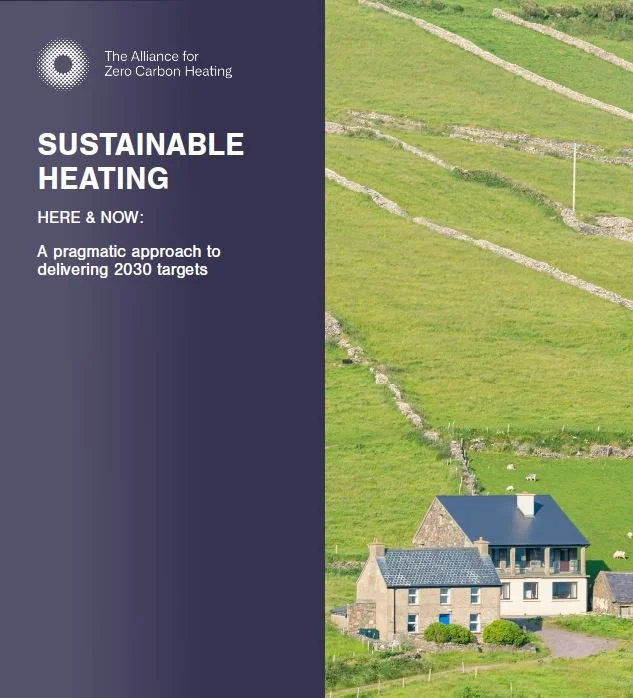Sustainable Heating Here & Now: A pragmatic approach to delivering 2030 targets.
The Alliance for Zero Carbon Heating (TAZCH) has published a new report titled “Sustainable Heating: Here & Now”, which finds that introducing a tested 20% renewable liquid heating fuel blend can be implemented immediately at no upfront cost to the consumer.
This proposal would also be equivalent to 160,000 heat pump and retrofit installations, which on the current trajectory, would take 25 years to achieve. The home heating sector accounts for around 10% of Ireland’s overall emissions and current Government policy has demonstrated that it will not deliver the emission reductions required under national and EU law. Despite the Government's target to install 400,000 heat pumps in existing homes by 2030, only a fraction of that goal has been reached, with less than 20,000 installed in existing homes since 2020 (approximately 4% of the 2030 target).
The key to reducing emissions in the residential heating sector will be implementing parallel, pragmatic policies for the approx. 700,000 households using liquid fuel boilers – many of which are in rural Ireland. In order to address this, TAZCH are calling for a policy approach which utilises all available technologies - including heat pumps, renewable liquid fuels and retrofitting - working together to achieve the emissions reductions that are drastically needed.
One change to this policy approach is a Renewable Heat Obligation (RHO) that matches the urgent need for swift decarbonisation and are therefore calling on the Government to implement an ambitious RHO with a 20% renewable blend target. The upcoming RHO, which will place an obligation on suppliers to ensure that a certain percentage of the fuel they place on the market is from renewable sources and will be implemented before the end of 2024, provides an excellent first step to decarbonise Ireland’s heating sector.
“There are several obstacles to deep retrofitting and widespread heat pump adoption that are slowing the decarbonisation of the residential heating sector” said Kevin McPartlan, spokesperson for TAZCH.
“These include the cost of installing a heat pump (even with SEAI grants), the associated disruption to the household, bottlenecks regarding access to the electricity grid, as well as a huge shortage of heat pump installers.”
“In contrast, the low carbon liquid fuels option presents impactful and proven solutions to these challenges. With no upfront cost to the consumer, zero disruption to the household, no impact on the electricity grid, and a skilled workforce of 10,000 already in place, this switch to lower carbon liquid fuels can effectively complement the ongoing heat pump roll-out”, he said.
TAZCH's new report underscores the need for a multifaceted approach to decarbonising residential heating in Ireland. By leveraging all available solutions - heat pumps, retrofitting, and renewable fuels – and ensuring they work in tandem, Ireland can make significant strides towards achieving its climate goals. An ambitious Renewable Heating Obligation to enable the uptake of low carbon liquid fuels presents a proven, immediate solution to decarbonise the home heating sector, particularly for homes in rural Ireland.





